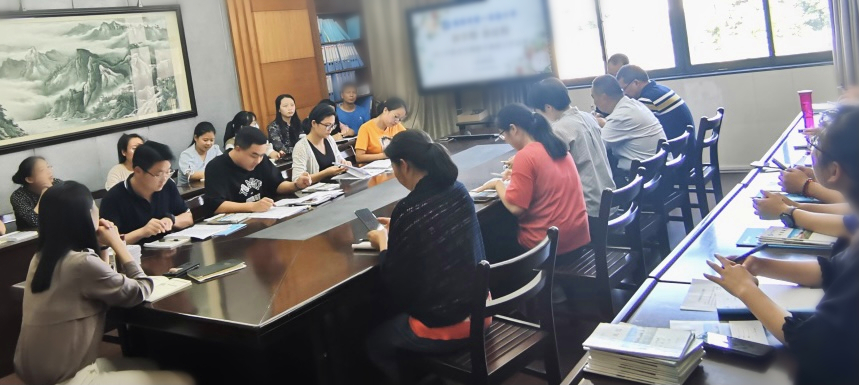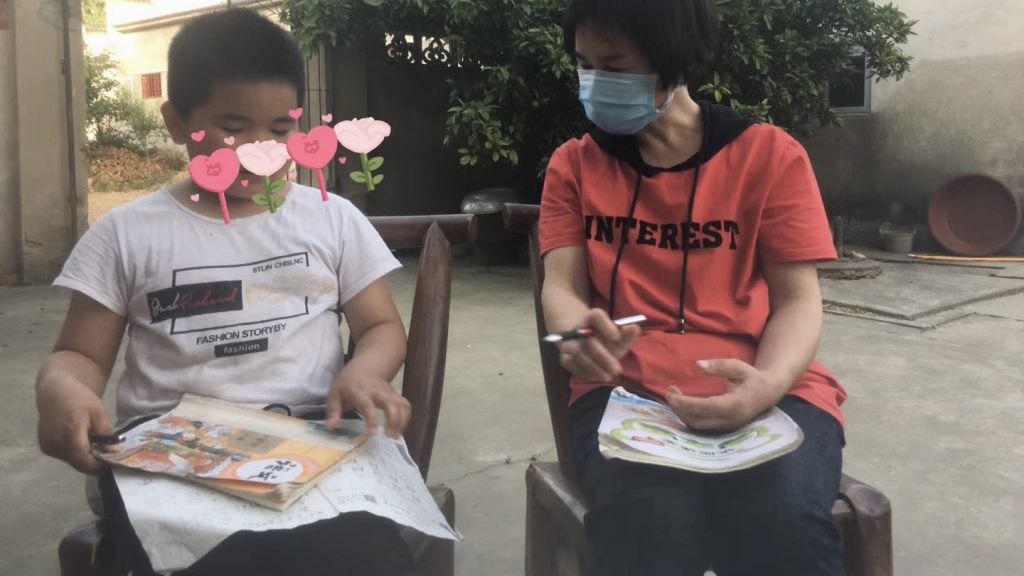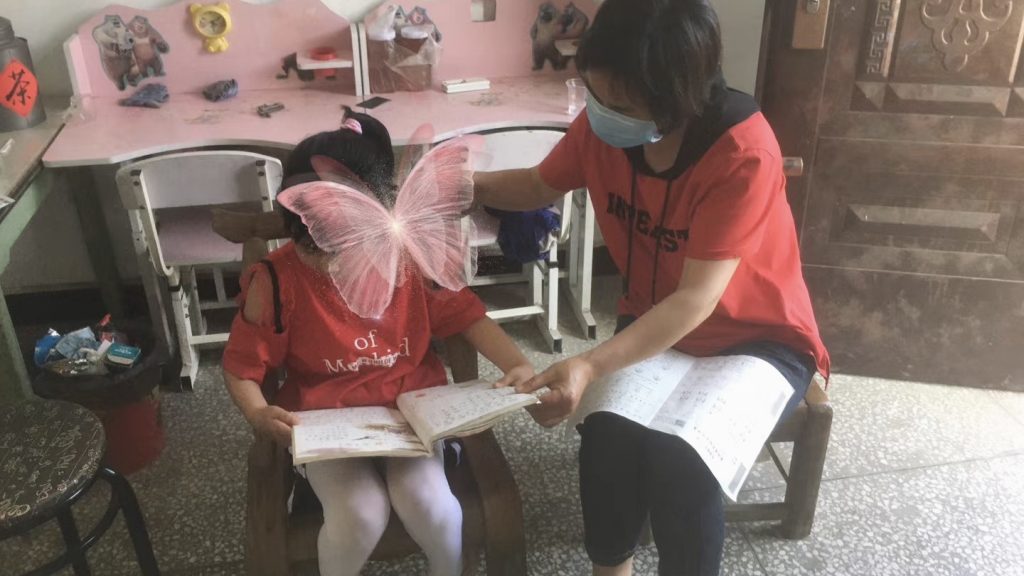Be a front-line teacher for title promotion. Stop being a front-line teacher after title promotion. Many teachers in China think this way. Teachers in Xiangcheng tell their stories with the professional title.
Every time you go through the title evaluation, it’s like having a layer of skin peeled off.
Cai Xiaoyan from Xiangcheng Tenth Secondary School Primary Section
Xiangyang City, Hubei Province, is in the geographical centre of China and is around the national average in terms of both population size and economic and social development. Xiangcheng District, the seat of Xiangyang’s municipal government, has 38 primary schools with 22,925 students and 1,148 full-time teachers as of 2019.
The number of teachers with junior, intermediate, and senior titles rigorously conforms to the nationally defined ratio of 6:3:1; a large proportion of intermediate teachers are over 40 years old, and most junior teachers have graduated with a bachelor’s degree and have not taught for long.
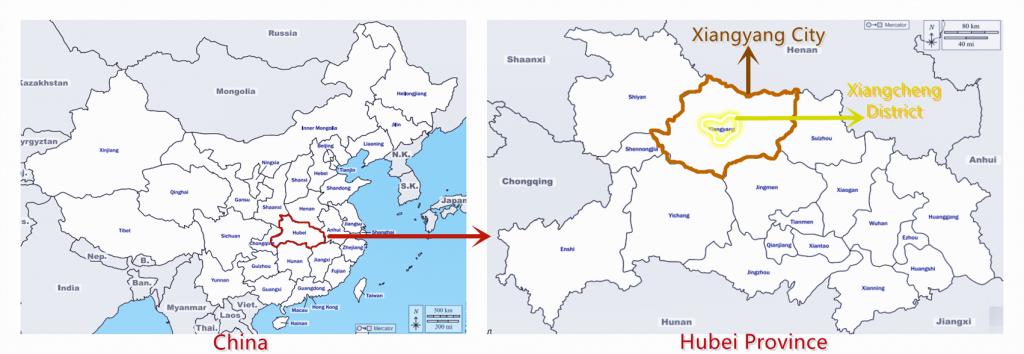
Behind the seemingly idealistic figures are the complaints and avoidance of primary school teachers about the title recognition.
On the one hand, teachers in the city spend a lot of time tinkering with their papers and attending training programmes and competitions. On the other hand, teachers in the villages attack each other behind their backs for the hundreds of Yuan difference in salary. On the one hand, older teachers complain about why such a long teaching career does not allow them to succeed in obtaining a higher title. On the other hand, younger teachers question why their title cannot be improved as they have the ability and achievements.
Leaving teachers struggling for years with their qualifications and salaries is undoubtedly not the original intention of establishing and reforming China’s teacher professional title system.
China enabled the system of the teachers’ professional title in 1986. It has been the direct reflection of a teacher’s working abilities and general qualifications. A teacher’s professional title, such as an intermediate title, is not a position that means you are a middle-level manager, but a term that you are certified as the medium level of a competent teacher. It closely affects teachers’ salaries, social status, and self-recognition.
Following the reform of the title system in 2015, a clear hierarchy of three categories formed. They are junior, intermediate, and senior title. These categories are further divided into twelve grades, that determine a teacher’s basic salary. For instance, a teacher’s intermediate title corresponds to grade eight to ten, each level being three to four hundred Yuan higher than the previous one.

“For teachers who live in the city, three hundred Yuan just equals a meal or a shirt,” said Qiao Shu, a teacher from Huaqiaocheng Primary School, “but a title is not something that reflects the money. It is an approbation, showing that I am competent and can be trusted by my students and parents.”
“But in rural areas, these few hundred Yuan are very important. Many teachers in rural primary schools do not have wealthy families and have to give lessons during the week and go home to work as farmers during breaks. The title is not only about their dignity but also about their standard of living. We care about different aspects, but for professional titles, we all have to fight for them,” said Qin Xiaolu, a teacher at Yinji Primary School in the western countryside of Xiangcheng.
Rules and procedures
If a teacher has graduated from university, has been teaching for more than five years, and holds a junior professional title, applying for the intermediate teacher’s title is as follows.
Firstly, receive a public announcement about the title application, download all the forms and complete them. Secondly, submit the application form, original and copies of all the required supporting documents to the school office and sign to promise no forgery.
Next, the school’s title assessment panel verifies and scores the teacher according to the information submitted. The teacher is not present during this process but must to wait outside the meeting room to provide timely explanations or supplements to the materials.
Then, the assessment panel ranks the teachers according to their scores, selects the top one or two places required by the quota (usually one or two intermediate teacher places per school) and conducts a five-day public announcement. When there are no complaints or queries during the publicity period, the school will submit the list of selected teachers to the local education department.
Last, the county level and municipal education department and the human resources department will review and approve the list of intermediate teacher candidates one by one.
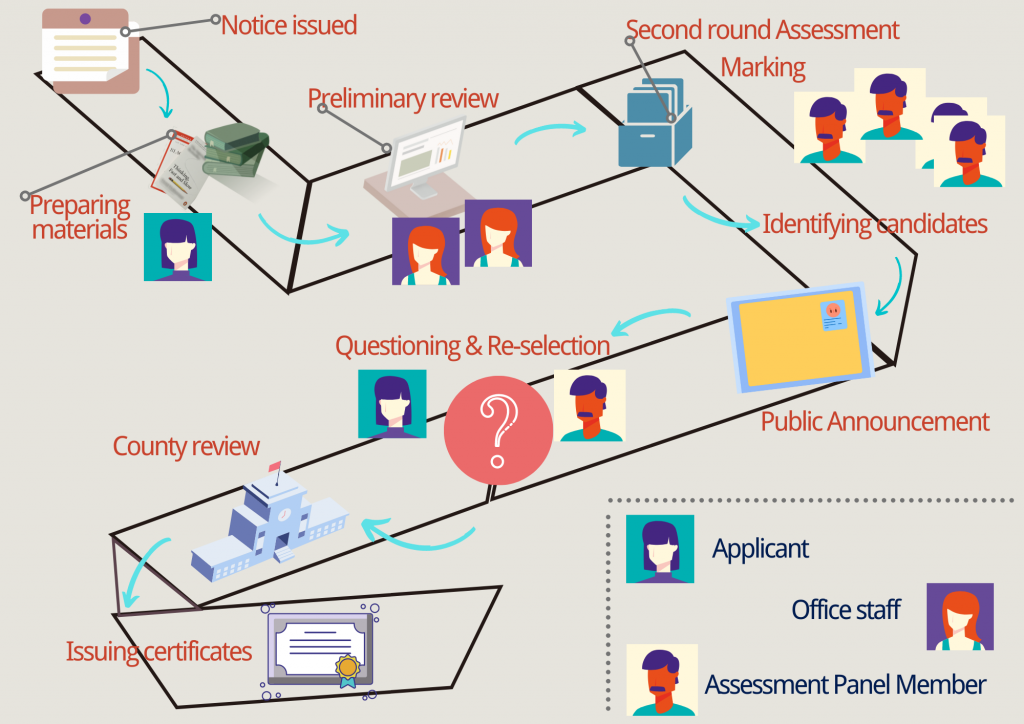
Up to this point, this teacher is still an alternate. The number of intermediate teachers in the school is fixed. They must wait someone being promoted to the senior teacher or retires. Thus, there is a vacancy, and they can be formally appointed as an intermediate teacher. The municipal education department and human resources department will issue a certificate to them.
In the first instance, a teacher needs to meet the basic requirements of five years of teaching experience and over 380 hours of teaching time per year. However, in practice, with an average of twenty teachers competing for one place, many young teachers are eliminated in the first round of assessment because of their short teaching experience.
Almost all teachers who make it to the second round of assessment have been teaching for over 20 years. Passing the first round means that a teacher’s essential score is sufficient, and all teachers’ scores are zeroed out and ranked in the second round by the additional points.
Quality Lessons, Open Lessons, honours, and class adviser experience have always been the most important additional points during the second round of assessment. However, the rules for exactly how many points correspond to those items are set by the individual school’s panel of judges.
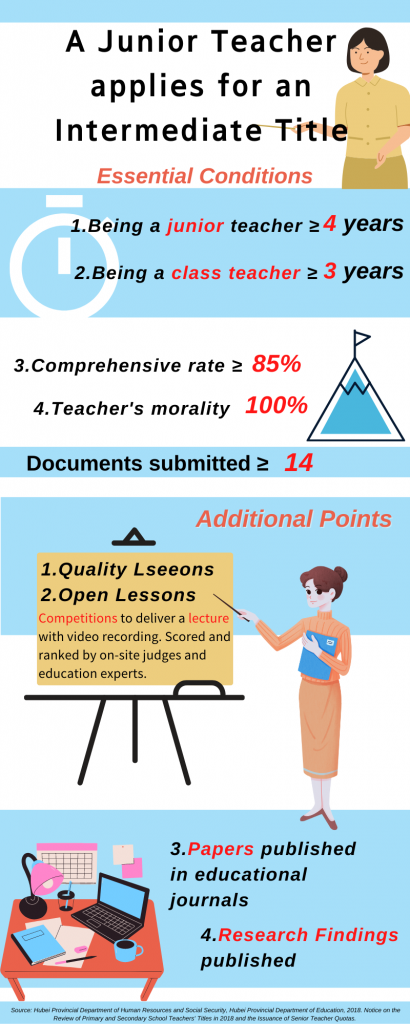
“The design of these rules is the art of the leaders,” says Cai Xiaoyan, a teacher in the primary section of Xiaoyang Tenth Middle School. Each time there is a change in the leader team, the rules for additional points change, too. With each adjustment, she found her plus points reduced.
She says: “In previous years, I published many papers in educational journals, some of which won the first prize at the provincial competitions. But the school director said only the highest-ranking paper in the publication would count as two points, and all the others were meaningless.
A few years later, there came a new headmaster. I no longer just published papers. I participated in Quality Lesson competitions and won a few more awards. But the rules changed again. All my awards of the Quality Lesson just count as 2 points. They can never be accumulated. However, in other schools in Xiangyang, papers and Quality Lesson awards are cumulative. What’s more excessive is that the years of being a class teacher are cumulative. So why?”

This situation is not beyond comprehension. Liang Jin, a teaching researcher from the Xiangcheng District Education and Research Office, witnessed it. When he was visiting the primary schools for inspection, he heard a headmaster say something like, “If I want to give you meat, it doesn’t matter if you are standing far away.”
“It’s true that some leaders have a preference when it comes to setting rules for additional points. For example, I know a relative of a headmaster who has never had any achievements as a teacher. How did he get promoted from a junior teacher to an intermediate teacher?
Firstly, he can be a class adviser for five years, which gives him 7.5 points. Secondly, writing a paper or an article in teaching experience is no longer a tricky thing. As there is a well-established dissertation writing and publishing industry, and he can effortlessly get his name in the list of authors of provincial educational journals for some five thousand yuan. Then in the school’s annual selection of outstanding teachers, the headmaster can use some tactics to get this teacher elected. If the points for this award can be accumulated, he can get another six or more points. Finally, the headmaster could set the rules so that the points for other awards won by other teachers are charged at just one point and cannot be accumulated, so that the other teachers cannot score higher than his relative. In this way, the teacher could succeed regardless of whether or not he deserves the intermediate title.” Liang Jin said.
Absurdities and injustices
“These unfair competitions have made people helpless,” said Huang Quan, a retired teacher from the central primary school in Ou Miao town. He passed the selection process for the sub-senior teacher a few months before his retirement but has been reluctant to talk about it. He said, “The incident both infuriated me and made me feel guilty.”
A year before his retirement, he had an opportunity to be promoted from an intermediate teacher to sub-senior teacher. When he submitted all the supporting documents to the school assessment panel, they told him that he had not published any papers in provincial educational journals and therefore could not pass the first round of assessment. He was too angry to speak, as this was not a mandatory requirement but simply a plus.
A year later, there came another review. He was no longer willing to prepare new materials. He went to the home of a leader in the local education department and brought a box of gifts with him. When he returned home, he submitted the supporting documents he had prepared the previous year to the school’s assessment panel in their original form. Unsurprisingly, he passed the assessment and was soon obtained the qualification of sub-senior teacher.
Huang Quan says: “I don’t want to tell anyone about it because I was ashamed. But I’m not the only one who does it. It’s a lot of people who do it. And if you don’t go for it, you don’t get anything.”
While Huang’s story is a more common one, the story of another local teacher, Wu Xingcai, is more dramatic.
Wu Xingcai is a maths teacher at Falong Town Primary School. He is a man who does not like to deal with his colleagues and purely loves to teach. While evaluating intermediate teachers in Falong Town Primary School, his materials were placed unnoticed in the corner of the meeting room. The materials sitting in the middle of the conference table belonged to teachers who had connections with members of the assessment panel and leaders of the local education department.
Coincidentally, a panel member got up to go to the toilet and accidentally tripped over Wu’s application documents on the floor. He picked up the file, looked at the name, and found that’s his high school classmate. With the help of this assessor, his classmate, Wu Xingcai was approved for the intermediate teacher title, which he almost had no hope of achieving.
In contrast to Wu Xingcai’s passive passing of the selection, Zheng Shifa took the initiative.
Zheng Shifa teaches in a rural primary school in Ou Miao town. According to the usual practice, he should apply to the school office. After the school’s review and approval, it is the county level and city level education department to review his materials. However, Zheng has a cousin who works for the city’s education department. He thought that the school would never consider him during the assessment, so he sent his application form and supporting documents directly to his cousin.
Two months later, when it was the announcement period, people found that he had successfully passed the assessment to become a sub-senior teacher. “No wonder there was only one vacant slot in our school this time when two senior associate teachers retired,” said the headmaster.
When these inequities became the norm, teachers became used to them. As time goes by, some teachers decide to give up participating in the title competition.
Young teacher Liu Congcong says: “The idea today is that even if you give me the title directly, I wouldn’t necessarily want it. I think that stuff is the biggest disgrace to my job. Because it doesn’t have any fairness to say.”
